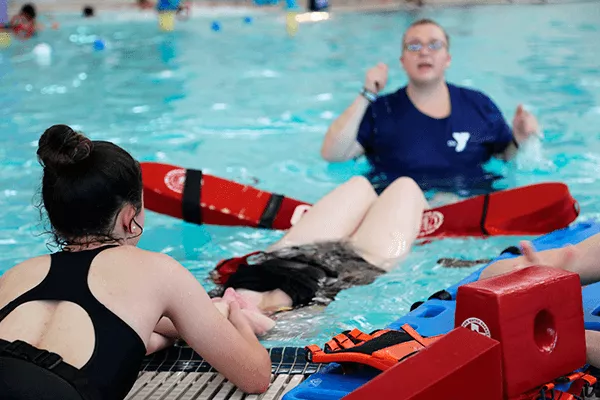When it comes to ensuring the safety of swimmers, having a trained and certified lifeguard on duty is crucial. Whether you’re a pool owner, a beach manager, or an event organizer, knowing how to find a qualified lifeguard near you is essential.
This article, branded by the American Lifeguard Association, provides an educational guide on the steps to take to find the right lifeguard near me.
1. Assess Your Needs
Before you start your search, determine the specific requirements for your location or event. Consider factors such as:
The size and type of the water facility (pool, beach, water park, etc.).
The average number of swimmers and their age groups.
The hours and days when lifeguard services are needed.
Any special considerations, such as high-risk areas or specific activities that require supervision.
Understanding your needs will help you identify the qualifications and experience level required for the lifeguard position.
2. Verify Certification
Ensure that the lifeguards you consider are certified by a reputable organization like the American Lifeguard Association. Certification ensures that the lifeguard has undergone proper training in:
Water rescue techniques
CPR and First Aid
AED (Automated External Defibrillator) usage
Emergency response protocols
Certified lifeguards are equipped with the skills and knowledge necessary to handle emergencies effectively.
3. Utilize Online Resources
Several websites and platforms can help you find certified lifeguards in your area. Start by visiting the American Lifeguard Association’s website, where you can access a directory of certified lifeguards. Other resources include local community boards, social media groups, and job posting sites dedicated to lifeguard services.
4. Contact Local Pools and Aquatic Centers
Reach out to local pools, aquatic centers, and swim schools. These establishments often employ certified lifeguards or have connections with qualified individuals. They can provide recommendations or even refer their own staff for part-time or temporary lifeguarding positions.
5. Network with Community Organizations
Community organizations, such as the YMCA, local sports clubs, and recreation departments, often have lifeguards on staff or maintain a list of certified professionals. Networking with these organizations can help you find reliable lifeguards who are already vetted and trusted within the community.
6. Post Job Listings
Create detailed job listings that clearly outline your requirements, including the type of facility, hours of work, certification requirements, and any special skills needed. Post these listings on job boards, social media platforms, and community bulletin boards. Be sure to highlight the benefits of working at your facility, such as competitive pay, flexible hours, and a positive work environment.
7. Conduct Thorough Interviews
Once you have a list of potential candidates, conduct thorough interviews to assess their suitability. During the interview, ask questions about:
Their training and certification
Previous lifeguarding experience
Specific incidents they have handled
Their approach to maintaining safety and enforcing rules
Availability and flexibility
This will help you gauge their competence, reliability, and fit for your specific needs.
8. Check References
Always check references to verify the candidate’s work history and performance. Speak with previous employers or supervisors to get insights into their reliability, professionalism, and ability to handle emergencies. References can provide valuable information that may not come up during the interview process.
9. Evaluate Physical Fitness
Lifeguarding is a physically demanding job that requires strength, endurance, and agility. Ensure that your candidates can meet the physical demands of the job by conducting a fitness evaluation. This can include swimming tests, timed rescues, and other physical challenges that simulate real-life scenarios.
10. Offer Competitive Compensation
Attracting and retaining qualified lifeguards requires offering competitive compensation. Research the average pay rates for lifeguards in your area and ensure your pay scale is attractive. Additionally, consider offering benefits such as bonuses for outstanding performance, opportunities for advancement, and continuous training to keep their skills sharp.
Conclusion
Finding a qualified lifeguard near you involves a thorough and methodical approach. By assessing your needs, verifying certifications, utilizing online resources, networking with community organizations, posting job listings, conducting interviews, checking references, evaluating physical fitness, and offering competitive compensation, you can ensure the safety of swimmers at your facility or event.
The American Lifeguard Association is committed to promoting water safety and providing the resources necessary to help you find the best lifeguards for your needs. Prioritize safety and make informed decisions to keep your aquatic environments secure.

